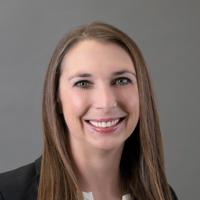Neurodevelopmental Program
This department offers
- Neurodevelopmental program
Welcome to the Heart Center Neurodevelopmental Program (HCNP)
Why choose HCNP
Children born with congenital heart disease face a heightened risk of developmental, behavioral, and functional challenges throughout their lives. These challenges can arise from various factors, including altered blood flow in the womb, surgical and medical interventions, and ongoing treatments.
At least 50% of children with CHD experience developmental delays.
Neurodevelopmental delays and disabilities are among the most enduring and impactful challenges faced by individuals with congenital heart disease and their families.
- Specialized testing: We offer in-depth evaluations tailored to children with congenital heart disease.
- Partnership with your care team: We collaborate with your child's cardiologist, pediatrician, therapists, and educators to ensure comprehensive care.
- American Heart Association (AHA) recommended: The AHA recommends screening and evaluations for children with congenital heart disease.
- No out-of-pocket expenses: HCNP bills your insurance but does not balance bill families. There are no co-payment or out-of-pocket costs.
- Family-centered approach: We involve families in every step of the process, providing education, support, and resources.
What we do
The HCNP is a collaborative program between the Primary Children's Heart Center and the University of Utah Developmental Assessment Clinics. We are committed to helping your child reach their full potential. By providing timely and comprehensive care, we aim to improve your child's quality of life and long-term outcomes.
- Developmental assessments: We evaluate your child's development at key stages and as needed throughout childhood:
- While they are in the hospital undergoing their surgical repair
- 6-12 months (for highest-risk infants)
- 18-36 months
- 4-7 years old
- 8-13 years old
- One-on-one consultations: we provide personalized recommendations for children in the hospital and ongoing assessments and recommendations throughout childhood.
What to expect
By providing timely and comprehensive care, we aim to improve your child's quality of life and long-term outcomes.
Specialized expertise: Our team includes experts in cardiology, developmental pediatrics, psychology, physical therapy, occupational therapy, speech-language pathology, nursing, and social work.
During your child's evaluation, our team may assess:
- Motor Development: Gross and fine motor skills, such as crawling, walking, and using utensils
- Cognitive Development: Problem-solving, memory, and attention skills
- Language Development: Speech, language comprehension, and social communication
- Social-Emotional Development: Self-regulation, behavior, and interactions with others
- Academics: School readiness, resources, and supports
You will likely be referred to HCNP after your child's first surgery.
Referrals can also be made by your child's cardiologist or pediatrician.
If you believe your child needs an evaluation, contact their cardiologist or pediatrician, or reach out to us directly.
HCNP clinic is held on Thursday afternoons from 1-5pm. We are in the Eccles Outpatient Building, across the street from Primary Children’s Hospital, in Salt Lake City, Utah.
- Check-in on level 2, station 4. Please arrive 10 minutes before your scheduled appointment.
- Estimated visit times vary based on your child's needs and age (1-3 hours).
- 6 - 12 months: 1 hour
- 18 - 36 months: 2-3 hours
- 4 - 6 years old: 2-3 hours
- 8 - 13 years old: 2-3 hours
Cardiac Neurodevelopmental Outcome Collaborative
Pathways App to track your baby’s milestones
Early Intervention Services:


